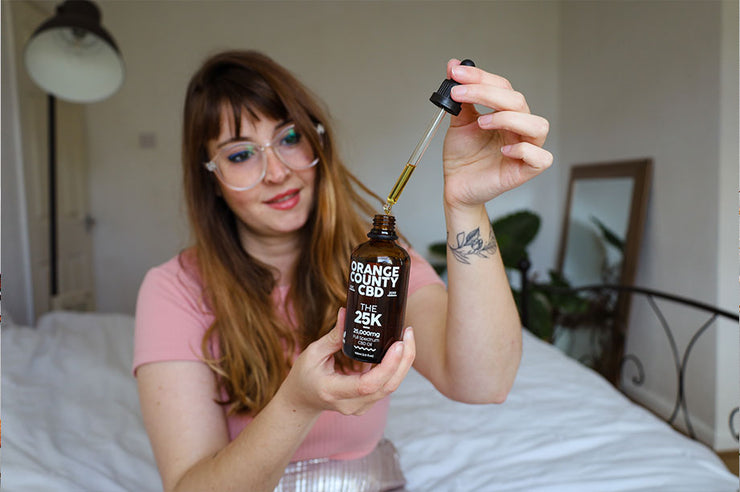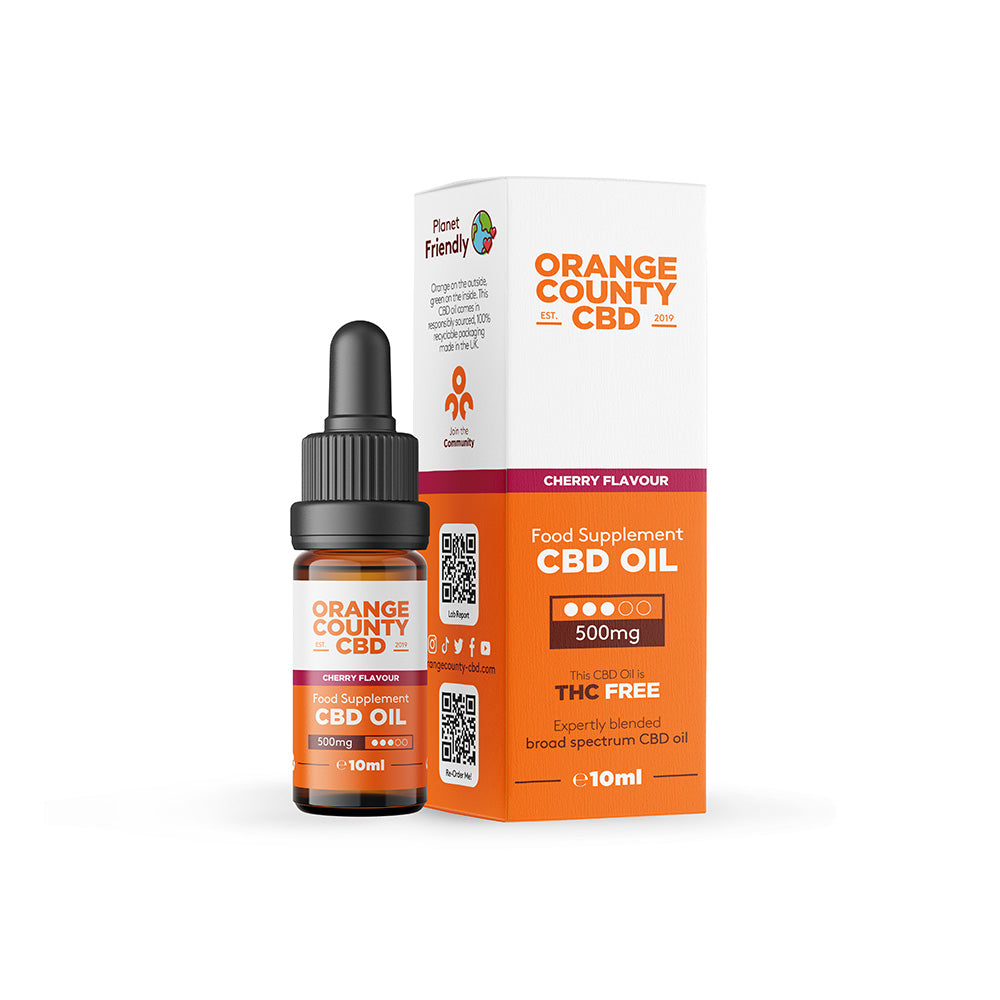Does CBD Get You High?


No - CBD will not get you high. It doesn’t produce the euphoric or disorienting effects typically associated with cannabis. [3]
This article breaks down why CBD behaves differently in the body, how it interacts with the brain, and what to look out for when choosing CBD products – especially if you're trying to avoid any trace of THC.
What Does CBD Feel Like?
Most people describe CBD’s effects as subtle but noticeable [2]. You might feel more relaxed, less anxious or physically looser - particularly if you’ve been dealing with tension or stress. Some users report a clearer headspace or improved focus. [1]
There’s no “rush” or euphoric buzz - just a gradual shift that often feels like your nervous system has taken a step back. These effects can depend on several factors including:
-
How you take it (e.g. CBD oils, CBD gummies, vapes)
-
Your personal body chemistry

Can CBD Make You Feel High If It Contains THC?
Legally produced full-spectrum CBD products in the UK may contain trace amounts of THC - but not enough to get you high. UK law caps THC content at 1mg per container, regardless of how large the product is. For most people this limit is well below the threshold required to feel any intoxicating effects.
That said, in rare cases and especially with high or frequent doses, THC may build up in the body and cause mild effects in sensitive individuals, like eye redness. This is one reason why lab-tested, clearly labelled products are so important - particularly for people who want to avoid THC altogether. Studies have found that some CBD products sold online are inaccurately labelled, with more THC than advertised.
Choosing a CBD oil that’s been tested by an independent lab helps ensure you're getting what the label claims.
Is CBD Legal in the UK?
Yes - CBD is legal in the UK as long as it contains less than 1mg of THC per container and comes from an approved hemp strain. Products must also meet safety and novel food regulations.
Unregulated or imported CBD products are where issues tend to arise. Some contain more THC than is legally allowed or come from sources that don’t meet UK quality standards.
For more details, see our guide on CBD oil legality in the UK.

What’s the Difference Between CBD and THC?
Both CBD and THC are cannabinoids - but they work very differently.
-
THC binds to CB1 receptors in the brain, which is what causes the high.
-
CBD does not activate these receptors and may even block some of THC’s effects.
Put simply: THC intoxicates, CBD calms. [4]
This is why full-spectrum CBD can contain tiny amounts of THC without causing a high – though people who want to avoid it completely often choose broad-spectrum or CBD isolate instead. If you’re unsure which type is right for you, our guide on the difference between full-spectrum and broad-spectrum CBD explains what sets them apart and how each one works.
Is CBD Psychoactive?
Technically yes - but not in the way many people assume. [1]
The term “psychoactive” refers to any substance that affects the brain. That includes caffeine, nicotine and even sugar. CBD can affect mood and mental state by interacting with brain receptors involved in things like anxiety, sleep and stress.
These include:
-
Serotonin receptors (5-HT1A) - linked to mood and anxiety
-
GABA receptors - help regulate calming signals in the brain
-
TRPV1 receptors - involved in how we perceive pain and temperature
So while CBD is psychoactive, it’s not intoxicating or impairing.
How to Choose CBD That Won’t Get You High
For a THC-free CBD experience, go with a broad-spectrum product from Orange County CBD, like the one below. It offers the natural benefits of multiple cannabinoids without any high. Always check third-party lab reports to confirm it’s THC-free, avoid vague ingredient lists, and start low to see how your body responds.
Research
[1] – Study: Cannabidiol and brain function: current knowledge and future perspectives
Source: https://pmc.ncbi.nlm.nih.gov/articles/PMC10823027/
Summary: While CBD does not induce the euphoria linked to THC, it is considered psychoactive in the sense that it can influence mood and cognition. Studies have shown that CBD can modulate brain activity, particularly in areas associated with anxiety and stress, such as the amygdala and prefrontal cortex
[2] – Page: Emerging Therapeutic Potential of Cannabidiol (CBD) in Neurological Disorders: A Comprehensive Review
Source: https://pmc.ncbi.nlm.nih.gov/articles/PMC10586905/?utm_source=chatgpt.com
Summary: CBD is generally well-tolerated, but some users may experience mild side effects.
[3] – Page: CBD Does Not Cause a "High"
Source: https://www.cdc.gov/cannabis/about/about-cbd.html
Summary: According to the Centers for Disease Control and Prevention (CDC), "CBD is not impairing, meaning it does not cause a 'high.'"
[4] – Page: The endocannabinoid system and brain function
Source: https://www.hra.nhs.uk/planning-and-improving-research/application-summaries/research-summaries/the-endocannabinoid-system-and-brain-function/
Summary: THC causes a high by strongly binding to CB1 receptors in the brain. CBD doesn’t bind well to these receptors and doesn’t cause intoxication. Instead, it changes the shape of CB1 receptors, making it harder for THC to attach.
health

